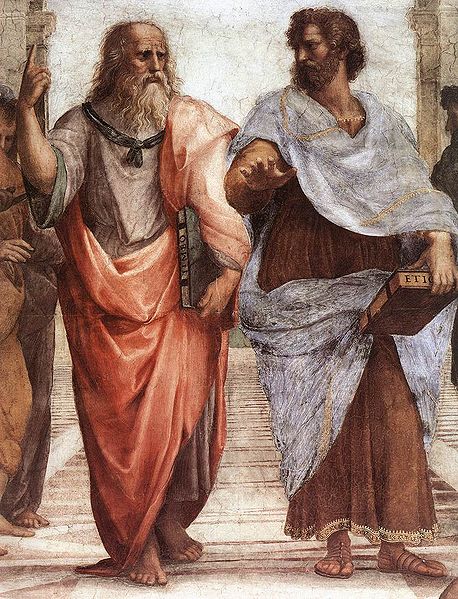-
3-minute read
-
28th September 2017
A Quick Guide to Citing Plato and Aristotle
Think that you’ve finally got your head around citing sources in academic writing? Think again! There are plenty of exceptions to the normal rules, especially when it comes to classical texts.
This is because there are many editions of certain books by historically important authors. In this post, for example, we’re looking at two exemptions from the usual rules of referencing: the works of Plato and Aristotle.

Citing Plato
Plato and Aristotle were both ancient Greek philosophers. Their work has been studied ever since, so you may come across them in your studies (especially if you’re a philosopher!).
These thinkers share more in common than togas and sandals though: each one is associated with a unique referencing system. Plato’s writing uses Stephanus numbers, where you cite a text by giving the title, a section number and letter:
Socrates describes himself as a ‘gadfly’ (Apology 30e).
The citation above, for instance, points to section 30e of the Apology.
This system is based on a Renaissance edition of the complete works of Plato. Pages in this were numbered continuously (so later books have higher numbers) and divided into five sections (labelled with letters from ‘a’ to ‘e’). Since this edition was historically important, most later versions of Plato’s writing have included Stephanus numbers in their margins.
Find this useful?
Subscribe to our newsletter and get writing tips from our editors straight to your inbox.
Subscribe to Beyond the Margins and get your monthly fix of editorial strategy, workflow tips, and real-world examples from content leaders.
Citing Aristotle
Aristotle’s works, meanwhile, are cited using Bekker numbers. This system combines the title, a book and chapter number, and an extra number to specify the part of the text cited:
Aristotle distinguished between actuality and potentiality (Metaphysics, XI.9, 1065b5-15).
This system is based on an edition of Aristotle’s writing used by August Immanuel Bekker. In the citation above, ‘Metaphysics’ is the work, ‘XI.9’ shows that it’s chapter 9 of book 11 within this, and ‘1065b5-15’ shows us the page, section and line numbers in the text.
Most modern editions of Aristotle’s writing include Bekker numbers in the margins. However, there are some variations of this system (e.g. abbreviating titles of works or using letters instead of Roman numerals). If you’re not sure which approach to use, check your style guide (or ask your supervisor).
In the Reference List
Some systems have specific rules for listing classical texts, such as those of Plato and Aristotle, in a reference list. APA, for example, says that ancient Greek texts can be left out of the reference list as long as you identify the version you’re using the first time it’s cited.
However, most referencing systems require full publication information in the reference list for texts by Plato and Aristotle. And this approach is usually better when writing an essay, even if you are using Stephanus or Bekker numbers.




